 | TODAY IN SCIENCE HISTORY NEWSLETTER - 22 APRIL |
| Feature for Today |
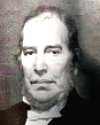 On 22 Apr 1789, Richard Roberts was born. This Welsh engineer was a versatile inventor who provided great improvments to diverse industries. He eventually became so famous, he was sought as a consultant by the French Emperor Napoleon and the Russian Emperor Nicholas. On 22 Apr 1789, Richard Roberts was born. This Welsh engineer was a versatile inventor who provided great improvments to diverse industries. He eventually became so famous, he was sought as a consultant by the French Emperor Napoleon and the Russian Emperor Nicholas.If his name means nothing to you, when you read Richard Roberts, the Inventor, you will likely be astonished that a man who made so many significant contributions to improve manufacturing should now be so obscure. Yet he left his mark in the efficiency of cotton mills, machine shops, steam engines and bridge building, among other applications, where he provided inventions-to-order. In this paper on Richard Roberts, the Inventor, that William Henry Bailey read to the Manchester Literary Club in 1879, you will also be reminded of the names of a number of Roberts' contemporaries that together are giants in the Industrial Revolution. |
| Book of the Day | |
| |
| Quotations for Today | |
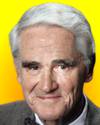 | "Few scientists acquainted with the chemistry of biological systems at the molecular level can avoid being inspired. Evolution has produced chemical compounds exquisitely organized to accomplish the most complicated and delicate of tasks. Many organic chemists viewing crystal structures of enzyme systems or nucleic acids and knowing the marvels of specificity of the immune systems must dream of designing and synthesizing simpler organic compounds that imitate working features of these naturally occurring compounds." |
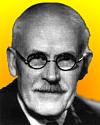 | "The real difficulty about vulcanism is not to see how it can start, but how it can stop." |
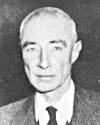 | "A discovery in science, or a new theory, even when it appears most unitary and most all-embracing, deals with some immediate element of novelty or paradox within the framework of far vaster, unanalysed, unarticulated reserves of knowledge, experience, faith, and presupposition. Our progress is narrow; it takes a vast world unchallenged and for granted. This is one reason why, however great the novelty or scope of new discovery, we neither can, nor need, rebuild the house of the mind very rapidly. This is one reason why science, for all its revolutions, is conservative. This is why we will have to accept the fact that no one of us really will ever know very much. This is why we shall have to find comfort in the fact that, taken together, we know more and more." |
| QUIZ | |
| Before you look at today's web page, see if you can answer some of these questions about the events that happened on this day. Some of the names are very familiar. Others will likely stump you. Tickle your curiosity with these questions, then check your answers on today's web page. | |
| Births | |
 |  An American theoretical physicist and science administrator, born 22 Apr 1904, was the director of the Los Alamos laboratory during the wartime development of the atomic bomb (1943-45). Later, accusations as to his loyalty and reliability as a security risk led to a government hearing that resulted the loss of his security clearance and of his position as adviser to the highest echelons of the U.S. government. The case became a cause célèbre in the world of science because of its implications concerning political and moral issues relating to the role of scientists in government. An American theoretical physicist and science administrator, born 22 Apr 1904, was the director of the Los Alamos laboratory during the wartime development of the atomic bomb (1943-45). Later, accusations as to his loyalty and reliability as a security risk led to a government hearing that resulted the loss of his security clearance and of his position as adviser to the highest echelons of the U.S. government. The case became a cause célèbre in the world of science because of its implications concerning political and moral issues relating to the role of scientists in government. Can you name this scientist? Can you name this scientist? |
| |  Gaston Planté, born 22 Apr 1834, was a French physicist who in 1859 produced the first device of its type. In an improved form, his invention is widely used in automobiles. Gaston Planté, born 22 Apr 1834, was a French physicist who in 1859 produced the first device of its type. In an improved form, his invention is widely used in automobiles. What was his invention? What was his invention? |
| Deaths | |
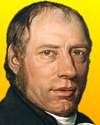 |  Richard Trevithick (1771-1833) was a mechanical engineer and inventor who constructed the world's first steam railway locomotive (1803). Richard Trevithick (1771-1833) was a mechanical engineer and inventor who constructed the world's first steam railway locomotive (1803). What was Trevithick's major design advance in the use of steam power that made the locomotive possible? What was Trevithick's major design advance in the use of steam power that made the locomotive possible? |
| Events | |
 On 22 Apr of a certain year, the first nationwide Earth Day was celebrated in the U.S. as an environmental awareness event celebrated by millions of Americans with marches, educational programs, and rallies. On 22 Apr of a certain year, the first nationwide Earth Day was celebrated in the U.S. as an environmental awareness event celebrated by millions of Americans with marches, educational programs, and rallies.  In which decade was this first Earth Day celebrated? In which decade was this first Earth Day celebrated? | |
 |  On 22 Apr 1924, a U.S. patent for new padlock construction was issued to its inventor Harry E. Soref. (No. 1,490,987). When he was unable to sell his invention of an inexpensive yet stronger padlock to any existing manufacturer, he established his own company, Masterlock. On 22 Apr 1924, a U.S. patent for new padlock construction was issued to its inventor Harry E. Soref. (No. 1,490,987). When he was unable to sell his invention of an inexpensive yet stronger padlock to any existing manufacturer, he established his own company, Masterlock.  What now widely-seen construction feature for inexpensive padlocks did Soref originate? What now widely-seen construction feature for inexpensive padlocks did Soref originate? |
| Answers |
When you have your answers ready to all the questions above, you'll find all the information to check them, and more, on the April 22 web page of Today in Science History. Or, try this link first for just the brief answers. Fast answers for the previous newsletter for April 21: Sequoia, Yosemite; cotton spinning and textiles; Top of the Needle, Seattle, Washington; a firehouse pole. |
| Feedback |
 If you enjoy this newsletter, the website, or wish to offer encouragement or ideas, please send feedback by using your mail reader Reply button. If you enjoy this newsletter, the website, or wish to offer encouragement or ideas, please send feedback by using your mail reader Reply button. |
--
If you do not want to receive any more newsletters, this link
To update your preferences and to unsubscribe visit this link
If you do not want to receive any more newsletters, this link
To update your preferences and to unsubscribe visit this link
! !



Δεν υπάρχουν σχόλια:
Δημοσίευση σχολίου